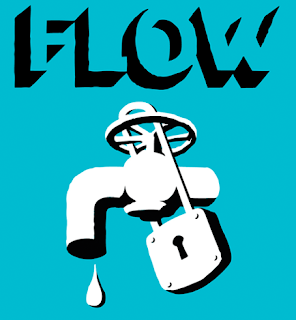










Paper
- Print double-sided to avoid wasting paper.
- Buy recycled paper products and always recycle paper when you’ve used it to its capacity.
- Write smaller, use the whole page and find creative ways to reduce the amount of paper you use.
- Save paper that has only been printed on one side and reprint on the back for school worksheets and printed things that can be less formal (use clean paper for nice projects, of course).
- Stop using paper towels and paper napkins and instead, use dishtowels and cloth napkins.
- Reuse wrapping paper.
- Buy brown paper for wrapping—it can be used for any occasion and it’s recyclable (most wrapping paper isn’t).
- Buy used books (the library sells some books for $0.50 - $1.00; The Bookstore on Hopyard has a neat selection of used books). Or reuse by borrowing books from the library or from friends.
- Avoid post-it notes—use old scrap paper instead.
- Bring a reusable mug to the coffee shop or fast food restaurant. Try to buy a metal-based coffee mug instead of plastic, since plastic is never a good choice.
Water
- Turn the water off when brushing your teeth and lathering your hands when washing them.
- Take shorter showers. Turn the water off while shampooing, etc.
- Instead of buying plastic water in a container from the store, invest in a water filter (Brita makes some great ones) that you can just pour cold tap water into. It filters out the bad stuff and leaves the water tasting great.
- Just drink tap water—a lot of the time it’s the same water you’re drinking from the bottle. Plus, plastic can leach into the bottles :(
Plastic
- Plastic doesn’t break down easily and it can cause many health problems. It’s also made from petroleum, which has causes pollution and other health problems. Plus, it’s a nonrenewable resource.
- Pledge to never again use plastic water bottles. Buy a reusable metal water bottle and never look back!
- Avoid food that comes in plastic. Often, the plastic can leach into the food.
- Avoid plastic baggies. Use Tupperware or glass jars (Anchor Hocking has great choices) instead.
- Say no to straws. If everyone used them as sparingly as possible, we’d save a lot of plastic from ending up in a landfill.
- Use old silverware instead of plastic utensils. Some companies make reusable wooden utensils that you can bring with you places.
- Any product (other than paper, for example)that is only used once should be a sign to any environmentally-conscious person…think about what the purpose of the product is and make a decision about using it or not based on how important using it is. There are almost always alternatives if the thing is truly necessary. People survived for thousands of years without plastic utensils or straws. Being able to see this—the concept of what is necessary versus what just makes my life easier (it takes planning to remember to bring your own utensils, so using a plastic one is easier, for example) is something that we all must think about if we really want to make a difference. Being aware is the FIRST step to changing your habits. Be always thinking about the impact of what you are doing.
- This may sound trivial, but it is something to think about: using a wooden pencil is a better choice than mechanical. In my opinion, plastic is never a better choice. Ever. Therefore, wooden pencils are a better choice.
Some more things to think about from EcologyCenter.org:
“Of all the greenhouse gas emissions in the United States, 36% are emitted from industrial sources and product manufacture, 28% from commercial and passenger transportation, 18% from commercial business, and 18% from residential sources.5 Significant greenhouse gas reduction requires a reassessment of many of our everyday activities.”
“Be a critical consumer. Cut down on CO2 by selecting locally produced whole foods, thereby reducing energy for processing, transport, and refrigeration. Purchase products that are manufactured without large energy inputs. For example, buy recycled — it requires much less energy to make a product using recycled materials than using new, raw materials. Picking used goods keeps materials from going to the landfill and eliminates energy for new manufacture. Avoid products with excess packaging, which is wasted energy. Livestock is a major source of methane and requires lots of energy to produce — consider your meat intake. Buy less stuff.”
There are so many other ways to make a difference. Got some ideas? Post them here or on our Facebook group.

From the movie's website:
"Irena Salina's award-winning documentary investigation into what experts label the most important political and environmental issue of the 21st Century - The World Water Crisis.
Salina builds a case against the growing privatization of the world's dwindling fresh water supply with an unflinching focus on politics, pollution, human rights, and the emergence of a domineering world water cartel.
Interviews with scientists and activists intelligently reveal the rapidly building crisis, at both the global and human scale, and the film introduces many of the governmental and corporate culprits behind the water grab, while begging the question 'CAN ANYONE REALLY OWN WATER?'
Beyond identifying the problem, FLOW also gives viewers a look at the people and institutions providing practical solutions to the water crisis and those developing new technologies, which are fast becoming blueprints for a successful global and economic turnaround."
For more information on the film, please visit the website at http://www.flowthefilm.com/.